Research News
15 February 2021
New research shines light on future directions for cities on sustainability and climate action

What’s in a word? ‘Smart’, ‘eco’ or ‘future’ cities? Around the world, numerous city initiatives have sprung up in recent years to signal their engagement with sustainable development and global climate change action. But what is the difference between these and other city labels? Are some more important than others? And how will they develop in the coming 50 years?
10 February 2021
5.7 million euro for hybrid energy storage systems
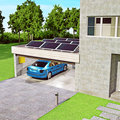
The Dutch Ministry of Economic Affairs and Climate Policy has allocated 5.7 million euro to FLEXINet. In the upcoming years, the FLEXINet consortium will develop hybrid energy storage systems – capable of storing both heat and electricity. Pavol Bauer, professor at TU Delft and project leader and coordinator: ‘The aim of FLEXINet is a system that accelerates the energy transition. We hope to make a substantial contribution to reaching climate targets by cleverly combining various techniques – think of blending recycled batteries with flexible heat pumps and the charging of electric cars.’
10 February 2021
Survey
We are collecting data about delays and extensions for PhDs. Please fill out our survey here!
02 February 2021
New Medical Delta program AI for Computational Life Sciences accelerates and improves drug development
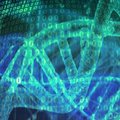
Medical Delta will start its fifteenth scientific program this month: Medical Delta AI for Computational Life Sciences. The program combines Artificial Intelligence (AI), bioinformatics and life sciences. It bridges scientific research to drug development and clinical usage for different diseases and disorders, including tuberculosis and brain disorders.
02 February 2021
New Medical Delta program AI for Computational Life Sciences accelerates and improves drug development

Medical Delta will start its fifteenth scientific program this month: Medical Delta AI for Computational Life Sciences. The program combines Artificial Intelligence (AI), bioinformatics and life sciences. It bridges scientific research to drug development and clinical usage for different diseases and disorders, including tuberculosis and brain disorders.
01 February 2021
TU Delft and ASML map non-visible materials at nanoscale with ultrasound
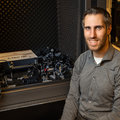
The increasing miniaturisation of electrical components in industry requires a new imaging technique at the nanometre scale. Delft researcher Gerard Verbiest and ASML have developed a first proof-of-concept method that they now plan to further develop.
01 February 2021
TU Delft develops 'brains' for buildings

A large consortium led by TU Delft is going to provide ‘brains’ to buildings. The Dutch Minis-try of Economic Affairs and Climate Policy has allocated 6.9 million euro to the Brains 4 Build-ings project. The objective of the project is to contribute to the development of smart meth-ods and algorithms that add operational intelligence to buildings, in order to make them as energy efficient and comfortable as possible. Professor and scientific coordinator Laure Itard: “Buildings’ energy systems have become so complex that their real time control cannot be achieved by traditional methods. We need much clever approaches using the potential of machine learning and artificial intelligence.”
28 January 2021
Pandemic & Disaster Preparedness Center: facing future disasters well prepared
In today’s edition of the TV show Jinek, Ernst Kuijpers, Marion Koopmans and Ahmed Aboutaleb presented plans for the Pandemic & Disaster Preparedness Center (PDPC) developed by the convergence collaboration between TU Delft, Erasmus University Medical Center (Erasmus MC) and Erasmus University Rotterdam. In this centre, Rotterdam and Delft bring together top scientists in the fields of medicine, engineering (including AI), logistics and sociology. Their ambitious research agenda addresses the extent and the interrelated aspects of future pandemics and disasters. In the Netherlands and around the world, there is an urgent need to better prepare for pandemics and disasters such as the current coronavirus crisis. The knowledge that has been acquired in the Rotterdam area can be applied broadly, which means that the Pandemic & Disaster Preparedness Center will be able to play an important role worldwide in preparing for future disasters and pandemics.
13 January 2021
Towards a renewable offshore energy system
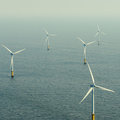
The energy transition is now well underway. By 2050, virtually the whole of the energy supply will need to be renewable and carbon-neutral. That is a huge task. It is not only domestic users that need to go gas-free; SMEs, industries, road traffic, public transport and aviation will also have to shift towards a renewable source of energy. An electric vehicle or hydrogen-fuelled aircraft is not enough: the electricity or hydrogen needs to be generated in a sustainable, green way. With wind, solar, tidal or wave energy.
12 January 2021
World record on the single-channel data rate of a standard optical fiber
The fiber-optic communication systems carry 99% of today’s internet traffic. These systems are under pressure due to an exponential rise in the bandwidth-hungry such as video conferencing, HD video streaming and online gaming. In order to increase data-carrying capacity of networks while keeping a lower labor and economic cost, researchers and industries around the world are working hard to achieve higher capacity per fiber.
11 January 2021
Consortium develops stress test for Port of Rotterdam energy transition investment plans: GridMaster
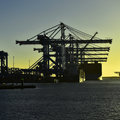
What is the future of the market for natural gas, hydrogen and electricity? A large consortium is working on an adaptive simulation model of the energy system of the port of Rotterdam.
07 January 2021
Andy van den Dobbelsteen appointed Sustainability Coordinator

The Executive Board has appointed Professor Andy van den Dobbelsteen as TU Delft Sustainability Coordinator with effect from 1 January 2021.
07 January 2021
ERC Proof of Concept grant for Farbod Alijani

Farbod Alijani, Associate Professor at the department of Precision and Microsystems Engineering, has been awarded a Proof of Concept grant by the European Research Council. He is one of 55 ERC grant holders that are set to receive top-up funding in this round to explore the commercial or innovation potential of the results of their EU-funded research.
06 January 2021
NEW: Journal of Delta Urbanism
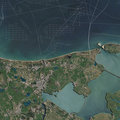
The first issue of the Journal of Delta Urbanism has been published! See jdu.tudelft.nl
17 December 2020
The Dutch are in favour of the introduction of a vaccination certificate as a reward
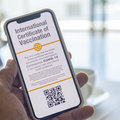
For us to be able to get Covid-19 under control, approximately 70% of the Dutch population would need to be vaccinated. There is considerable support among the Dutch population for the introduction of a vaccination certificate to encourage people to have themselves vaccinated. A vaccination certificate would offer people who have been vaccinated more freedom, for example to keep up their usual activities during an outbreak or to attend events at which maintaining a distance of 1.5m between people is not possible. This has become apparent from representative research among 1,640 Dutch people that was conducted by researchers from TU Delft, Erasmus University Rotterdam, RIVM, Maastricht University and Roskilde University.